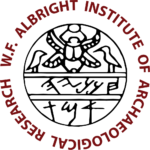About
About US
The W.F. Albright Institute of Archaeological Research in Jerusalem supports and facilitates research on the history and societies of the Near East from prehistory through the twenty-first century. Albright scholars document and preserve material and textual evidence as cultural resources and educate the public about the history and cultures of the region. The Albright Institute pursues these multidisciplinary goals by promoting archaeological and historical research and excavation, sponsoring doctoral and post-doctoral research fellowships, and including students and the public in our lecture and research programs.
The W.F. Albright Institute of Archaeological Research is a registered U.S. 501(c)3 non-profit organization.
Today the Albright is one of three separately incorporated institutes affiliated with the American Schools of Oriental Research (ASOR); the other two are in Amman and Nicosia. For more than a century, the Institute has provided scholars with an unparalleled international cultural environment, and a unique program that spans the broad spectrum of ancient Near Eastern studies.
While the Albright originally emerged from the need for an on-the-ground research center for Biblical Studies, the Institute has dramatically expanded its disciplinary and temporal range of supported studies in its mission over the last century. As an epicenter of cultural, historical, philological, archaeological, and art historical research in Israel and Palestine, its research base has broadened to include all aspects of Near Eastern studies, as well as expanding chronologically in both directions, into the prehistoric periods, Greco-Roman, Byzantine, early Islamic, and Medieval periods. The Albright places high priority on keeping up with the evolution and demands of the disciplines in the region.
The Frerichs Program for Albright Fellows is an international fellowship program that gives scholars of the Near East an opportunity to engage firsthand the world that they study, to provide a formal framework for that engagement in the form of study tours and workshops, to provide resources for study and research, and to facilitate dialogue between scholars.
Stipended fellows live on campus in the residence facility, worrying about nothing more than their research. The 80,000-sq-ft Albright Campus features three main buildings, a large parking lot, extensive gardens, an outdoor laboratory, and a smaller office/lab building. The legendary tree-shaded courtyard provides quiet and privacy from the bustling neighborhood outside the property. Now, as in the past, the Albright annually provides a wide range of programs and facilities for doctoral and post-doctoral research, as well as information-sharing, internship and field work programs.
